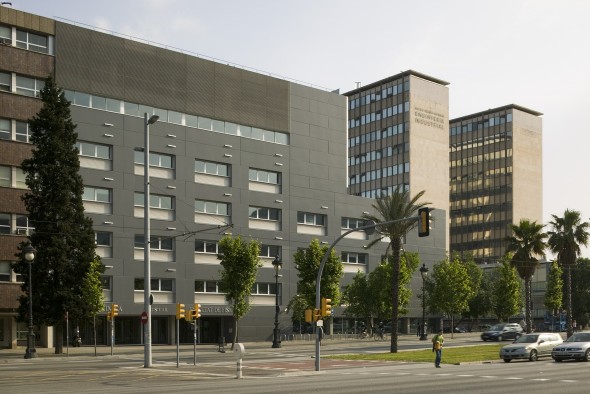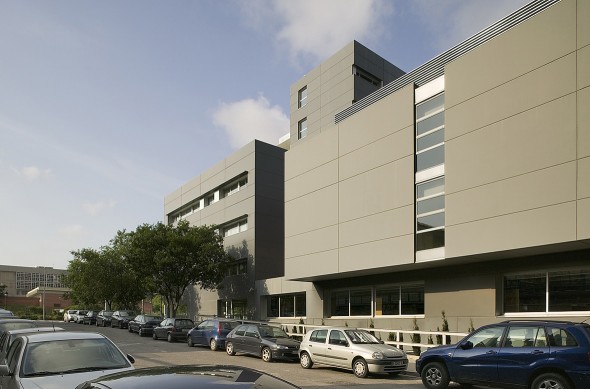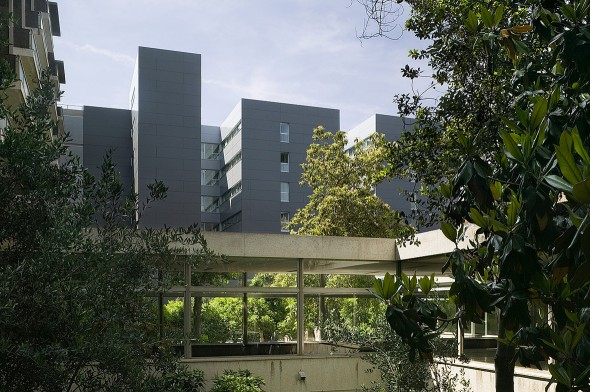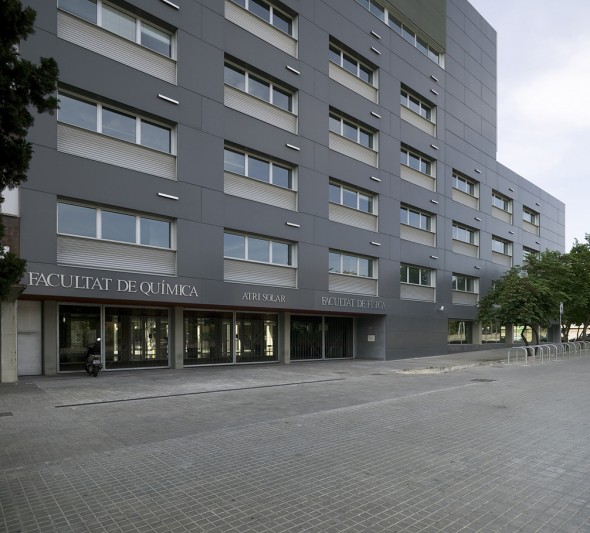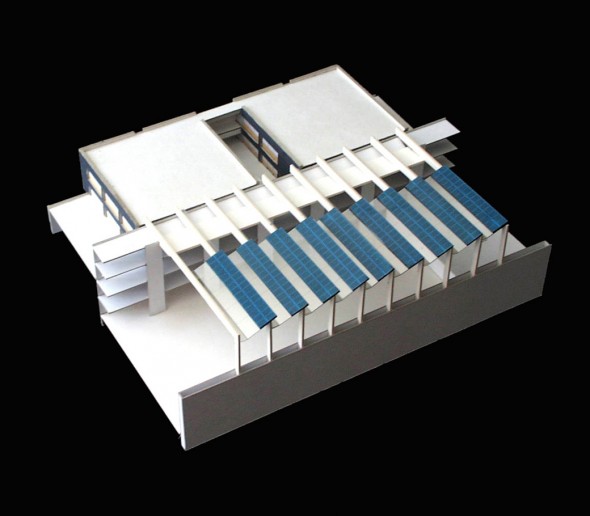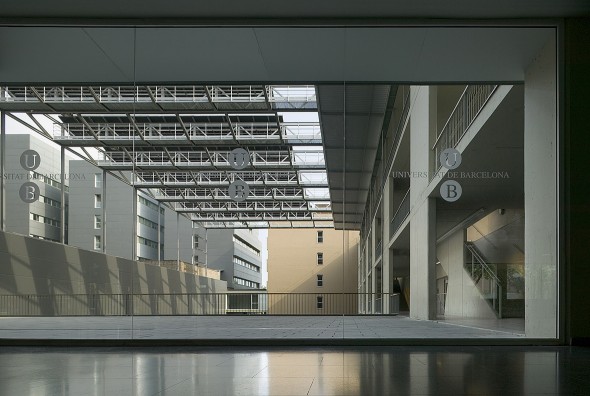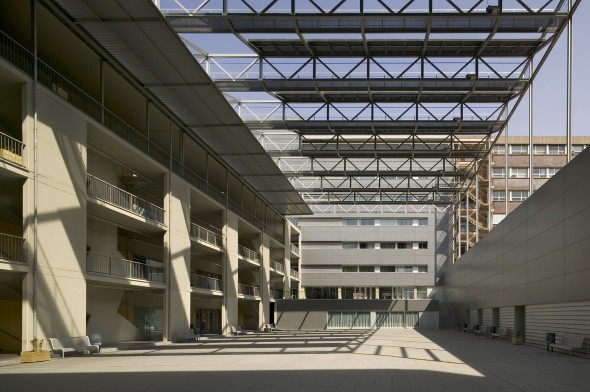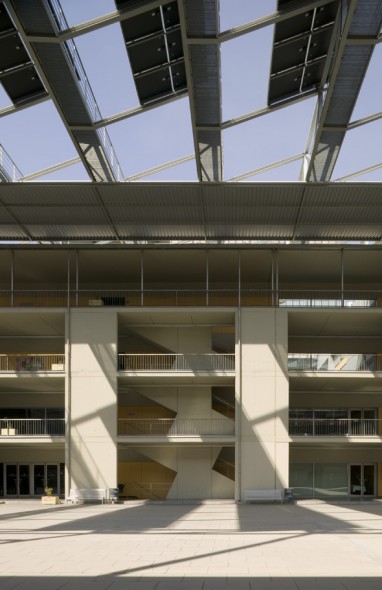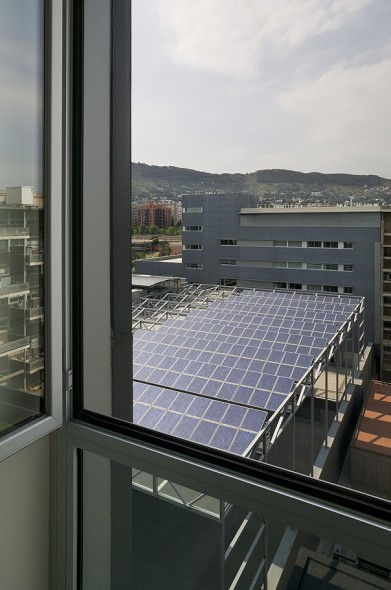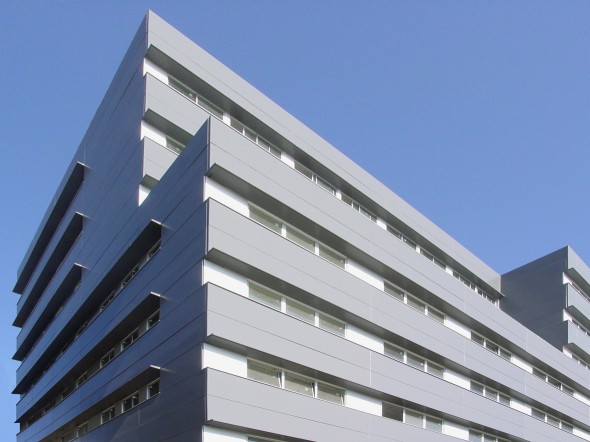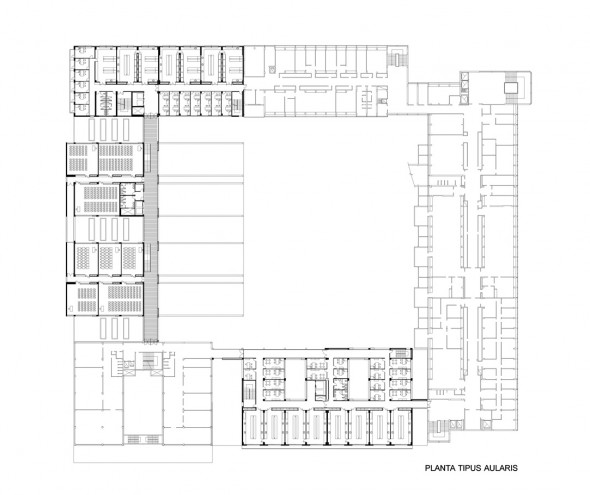Physics and Chemistry Faculty extension in Barcelona
| Dates | 1997 - 2004 |
| Site | Campus Pedralbes. Barcelona |
| Client | Universitat de Barcelona |
| Built area | 28.000 m2 |
| Architects | Joan Pascual |
| Technitian | Ardèvol & Associats, Francesc García |
| Structure engineer | Carles Buxadé, Ramon Farrando |
| M&E engineer | Jaume Boneu |
| Imaging | Lluís Casal |
COMPETITION – 1ST PRIZE | 1997
In 1997, Barcelona University organized a design competition for the extension of the Physics and Chemistry Faculty building. The first buildings of the Faculty were built in the 1960s, and they were located at the corner of Avinguda Diagonal with Marí i Franquès St. Later, a smaller building for the Physics department was raised in the opposite corner. The result was a “U” shaped building which covered three sides of a block, the North-East corner remaining undeveloped.
The extension is designed around a great atrium to which all the public areas are connected. The importance of this atrium is emphasised by the construction of a huge canopy covering the space with a vast collection of photovoltaic panels.
The presence of the solar panels in this canopy represents the first design ever in Barcelona where the construction of an independent structure for the use of passive solar systems is integrated into a building.
